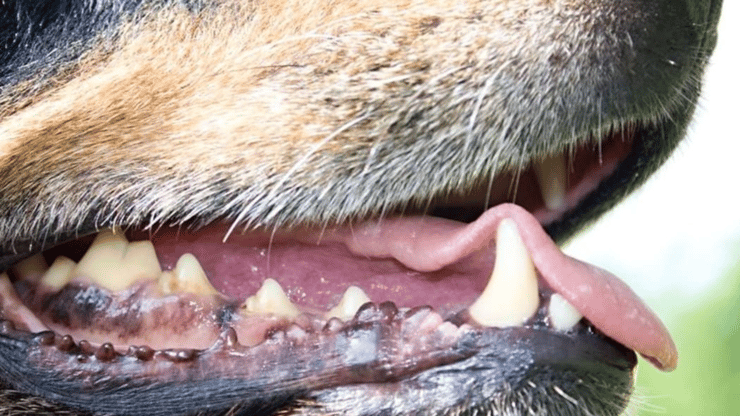Dogs Kill Up To 30 Cats In Suburb As Residents Live In Fear

Packs of unsupervised dogs are terrorising South Auckland neighbourhoods, residents say, with scores of cats killed in one suburb alone.
Conifer Grove resident Carl Smith saw two dogs attacking his family's cat, Shadow, after being woken by screams and barks in the night.
Smith and his family spent the next 12 hours at the after-hours vet trying to save Shadow.
"The after-hours vet found out that his injuries were just too bad and we had to put him down at 12 o'clock the next day," he said.
"Twelve hours of after-hours vet care cost us $4000, which we couldn't really afford. It was horrific for the three of us."
Conifer Grove Residents' Association chair Kelvin Hieatt said Shadow was one of between 20 and 30 cats killed in Conifer Grove alone.
"That was due to one pack of dogs roaming at night working as a tag-team," he said.
"People, quite rightly so, fear for themselves, their children and their own animals."
Packs of roaming dogs have become a common sight throughout the wider Manurewa-Papakura area.
The council's animal management team Leader, James Faulkner, said it was getting worse.
"It's more common than we would like, that's for sure," he said.
"There's definitely been an increase. So far this financial year we've had over 10,000 roaming dog reports."
Auckland Council's financial year runs from 1 July to 30 June.
"For the previous financial year it was 12,700 in total. There's still a few more months to go [this year] so with the rate of reports we're getting we're likely to beat last year's number."
More than 130,000 dogs were registered as living in Auckland, and Faulkner said that number was growing fast.
"There's an annual growth of between 5 and 6 percent in the population, mainly due to the Covid lockdowns," he said.
"[With] remote working, everyone wants to have a dog at home and [they've been] unable to de-sex their dogs."
Manurewa Local Board Chair Matt Winiata said he heard reports from concerned residents every day.
"We see reports shared by the public on a daily basis. We see this day in, day out through every hour of the day."
He said some were scared to go outside.
"We've got residents who don't walk their dogs if they've got smaller dogs. Their dogs are being attacked," he said.
"A lot of owners are starting to back off from taking their dogs on walks, and when that starts to happen you realise how big of a problem this is."
Hieatt said the dogs who killed Shadow were caught and euthanised.
"We formed a group and we were patrolling at night," he said.
"We were basically being the eyes for animal management, so once we saw the dogs we reported back."
But he said other dogs were still roaming the streets and the council's response had been hit or miss.
"We had some very good responses and we had some very poor responses," he said.
"Some people would say that they were slow and useless, but it's not easy catching dogs at night time. You can't see them, they disappear down alleyways."
James Faulkner said his team was doing everything it could with limited resources.
"We're as proactive as we can be on this," he said.
"We have a fantastic dog bite prevention programme, we work with communities to explain the importance of responsible dog ownership - why it's important to train your dog, socialise it, and have it de-sexed."
As South Auckland's dog population continued to rise, Faulkner said it was more important than ever for the public to report sightings of roaming dogs to the council.




